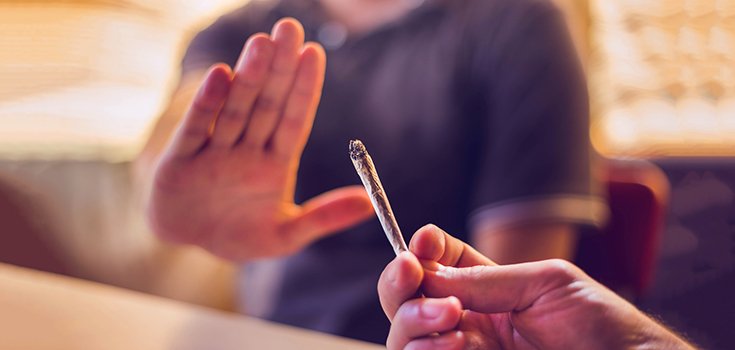Study: Teen Pot Dependency DOWN Despite Looser Marijuana Laws

The legalization of marijuana around the country has many parents concerned that it will only get easier for their kids to get their hands on the vilified plant. But a study from Washington University School of Medicine in St. Louis should calm parents’ fears.
Researchers there studied a national database on drug use by over 216,000 preteens and teens ages 12-17, and found that fewer kids are dependent on marijuana, or struggling with school or relationships. All of these problems declined by 24% from 2002 to 2013.
During that time period, the number of kids who said they used marijuana in the previous 12 months dropped by 10%. Minor declines were also observed in the number of behavioral problems, such as fighting, shoplifting, and selling drugs.
Behavioral issues and drug problems tend to go hand-in-hand. The “why” can go either way – when kids are no longer dependent on drugs, they have fewer serious problems. But kids who have fewer serious problems, or resolve them, are also less likely to be dependent on drugs.
The team wrote in the study, published in the Journal of the American Academy of Child & Adolescent Psychiatry:
“The reduction in the past-year prevalence of marijuana use disorders among adolescents took place during a period when 10 US states relaxed criminal sanctions against adult marijuana use and 13 states enacted medical marijuana policies. During this period, teenagers also became less likely to perceive marijuana use as risky, and marijuana use became more socially acceptable among young adults.”
Read: Physician Group Supports Federal Decriminalization, Regulation of Marijuana
Lead study author Richard Grucza, PhD, an associate professor of psychiatry atWashington University School of Medicine, said:
“We were surprised to see substantial declines in marijuana use and abuse. We don’t know how legalization is affecting young marijuana users, but it could be that many kids with behavioral problems are more likely to get treatment earlier in childhood, making them less likely to turn to pot during adolescence. But whatever is happening with these behavioral issues, it seems to be outweighing any effects of marijuana decriminalization.”
In 2002, about 16% of young people reported using marijuana during the previous year. By 2013, that number had dropped to below 14%. And the percentage of young people with “marijuana-use disorders” declined from about 4% to about 3%.
Grucza said:
“Other research shows that psychiatric disorders earlier in childhood are strong predictors of marijuana use later on. So it’s likely that if these disruptive behaviors are recognized earlier in life, we may be able to deliver therapies that will help prevent marijuana problems — and possibly problems with alcohol and other drugs, too.” [1]
The findings don’t mean that the loosening of marijuana laws are the reason behind the drop in marijuana dependence and behavioral/personal issues. But they do suggest that other factors – including broader behavioral and mental health trends – have a much broader effect on teen marijuana use than laws and attitudes towards pot.
Last year, a study published in Lancet Psychiatry found that legalizing medical marijuana had no effect on teen marijuana use at the state level. Other large surveys of adolescents have found that marijuana use among kids has been flat. And state-level federal survey data shows teen marijuana use has remained about the same, even in states where it has been legalized for adults.
Marijuana offers many health benefits, and there has never been a fatal overdose of cannabis in recorded history, though some studies have suggested that marijuana use may harm the developing teen brain.
Sources:
